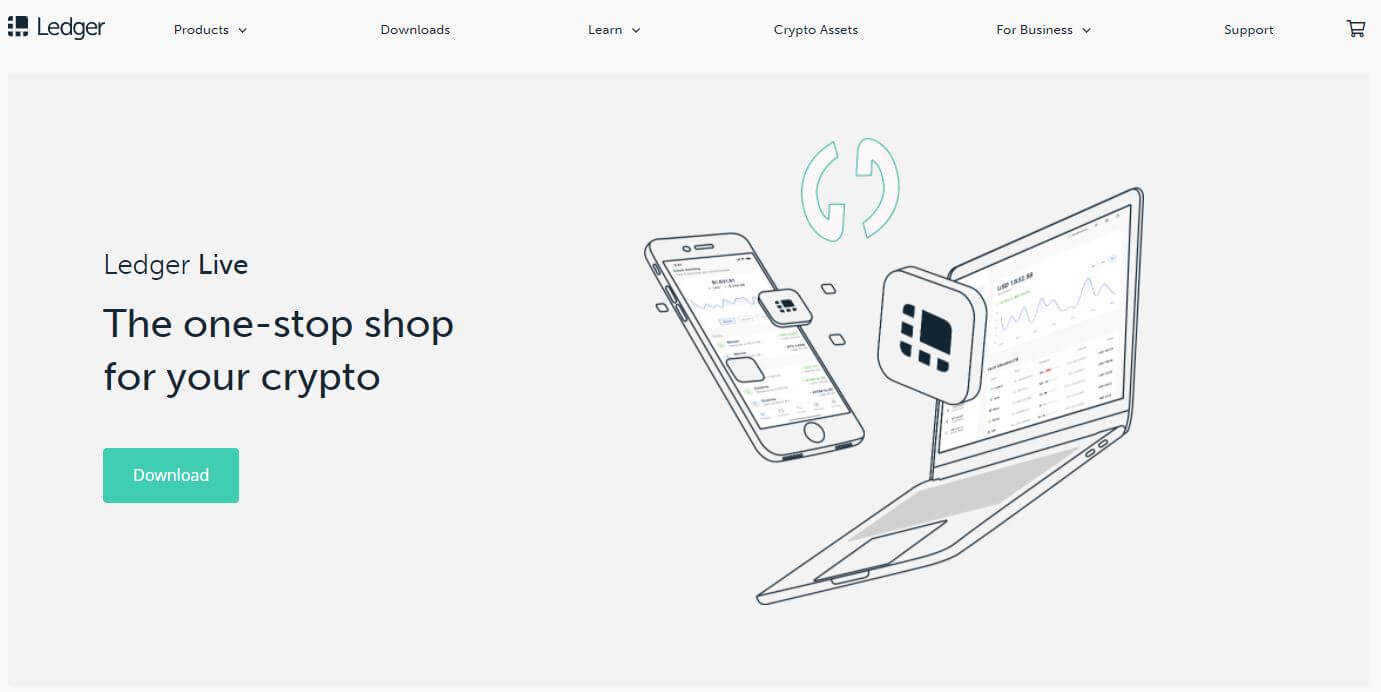
2021-4-19 15:21 |
What is Algorand?
Algorand is a scalable, secure, and decentralized cryptocurrency and smart contract platform. The system works on a consensus mechanism called pure proof of stake; a variant of the popular proof of stake mechanism – The consensus mechanism used by the Ethereum network.
The main benefit of this system is that Algorand can finalize new blocks in seconds, which means it can send transactions almost instantly. Another stand out feature of Algorand is its ability to offer highly customizable smart contracts.
The cryptocurrency is the creation of award-winning MIT Professor Silvio Micali. The company boasts many big names from MIT alongside a number of other highly reputable academics.
This article will outline how you can start earning passive income through staking Algorand.
How to Stake AlgorandThe great news is that staking with Algorand doesn’t require any technical knowledge, making it accessible for cryptocurrency enthusiasts of any level. There are a few ways you can stake Algorand; the most popular of these are:
Ledger hardware walletExodus WalletTrust Walletyou can also stake ALGO on Binance and Coinbase (read here more about the best staking exchanges)Staking Algorand is a passive process, which means that all you need to do to gain rewards is hold Algorand in a wallet that supports staking.
There are some minor differences in how to setup the staking process on different platforms, we have outlined how to stake Algorand with some of the most popular of the supported wallets:
How to Stake Algorand with Ledger LiveStaking Algorand with Ledger Live is a straightforward process.
Install the Algorand application on your Ledger hardware wallet. Create an Algorand account on the Ledger Live app.Add a minimum of 1 Algorand in your account to start earning.In the Algorand section, choose claim rewards whenever you want to claim your accumulated Algorand. How to Stake Algorand with Exodus WalletStake Algorand with Exodus by following these steps:
Download the Exodus Wallet Enable Algorand in settingsSend a minimum of 1 Algorand to your Exodus wallet.Claim your accumulated Algorand rewards in the Algorand settings area How to Stake Algorand with Trust WalletStake Algorand with Trust Wallet by following these steps:
Send a minimum of 1 Algorand to your Trust WalletHold Algorand in your wallet.Rewards are added to your wallet automatically. The Benefits of Staking AlgorandStaking Algorand comes with many benefits, mainly its ease of use. Some other benefits are shown here:
Passive process – no action required, holding Algorand makes you eligible for rewardsLow minimum balance – you only need to hold 1 Algorand to be eligible for rewardsCompound rewards – Once claimed rewards are added to your global balance, allowing you to earn compound interest through your rewardsLow risk of forkingHigh-speed transactions How Much Can I Earn Staking Algorand?Historical data suggests that staking Algorand will give an average yield of around 5-6% per year. You can read here more about the best staking coins that have the best APY.
These average yields may change drastically over time due to changes in the market and updates to Algorand.
It’s important to note that all cryptocurrencies are subject to price fluctuations and any coins that you stake can increase or decrease in value over time.
For an easy way to calculate how much you can expect to earn with Algorand check out the Algorand calculator at Staking Rewards which outlines how much you can earn when staking Algorand.
ConclusionStaking Algorand provides a straightforward means of earning income through staking cryptocurrency. You can stake Algorand using a number of wallets including Ledger Live, Exodus and Trust Wallet.
The staking process with Alogrand is passive. This means that all you need to do to get rewards is hold your Algorand in a wallet that supports staking. Making is accessible to cryptocurrency investors of any levels. If you are new to staking or are looking for a straightforward way to earn more with your digital assets then staking Algorand is a good option.
FAQ How Do I Receive My Rewards?Rewards are claimed every time a transaction occurs to or from your account.
It is possible to make a transaction of 0 ALGO in order to claim rewards.
Can I Earn Rewards?Anyone who holds the minimum account balance of 1 Algorand will automatically be opted in for staking rewards if their wallet supports staking. We recommend you use Ledger, Exodus or Trust Wallet to make the staking process straightforward.
How Can I Start Earning?No specific action required; all Alogrand users with one or more Algorand have automatically opted into rewards. The only thing you have to do is hold your Algorand in a wallet that supports staking. The best choices are Ledger, Exodus and Trust Wallet.
How Frequently are Participation Rewards Distributed?The frequency of reward distribution is a function of the total circulating supply of Algorand and the current rewards rate. For example, in June 2020, rewards were distributed approximately every 9 minutes to all accounts holding at least 1 Algorand.
What is the Current Rewards Rate?Historical data suggests that the annual yield from staking Algorand is around 5-6%
Will I Get Better Rewards by Running a Relay node? Will I Get Better Rewards by Running a Participation node?No, currently, there is no increase in rewards for users running a relay or participation node.
Is Compounding Rewards Automatic?The compounding effect is not automatic. These are the rewards calculated from the last recorded balance on the blockchain. Compounding rewards is fairly straightforward. The easiest way to compound rewards is to send a zero Algo transaction to the target address on a recurring basis.
Do I Still Earn Participation Rewards if I Store my Algorand in an Exchange Like Binance or Coinbase?It depends on the platform. Algorand stored on exchanges still receive rewards, but the platform is receiving the rewards. Some platforms will give rewards to the user, whereas some may not.
We recommend checking with your platform of choice before adding Alogrand to your wallet.
The post How to Stake Algorand? Where Can You Stake ALGO? appeared first on CaptainAltcoin.
origin »Bitcoin price in Telegram @btc_price_every_hour
Breakout Stake (BRX) на Currencies.ru
|
|





